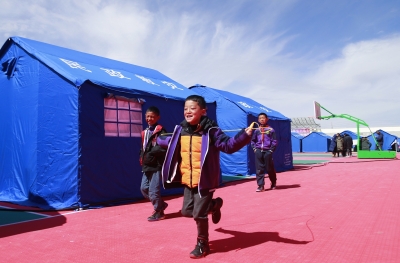

China allows couples to have 3 kids as birth rate falls and population goes grey
<p>
Chinese couples will now be allowed to have three children as the Xi Jinping regime desperately tries to reverse the country&rsquo;s falling birth rate and avert a demographic crisis. The Chinese Communist Party&#39;s top leadership took the decision at a meeting on Monday, according to state-run news agency <em>Xinhua</em>.</p>
<p>
The move has come merely three weeks after China&rsquo;s once-a-decade census showed that the country had a fertility rate of just 1.3 children per woman in 2020 which is far below 2.1 needed to maintain the population at the existing level. In fact, China is on par with ageing societies like Japan and Italy.</p>
<p>
The Chinese government has been worried since a declining population would depress economic growth as an adequate number of young people would not be available for work at the country&rsquo;s factories.&nbsp;</p>
<p>
Besides, an increasingly belligerent China with ambitions of being a superpower is finding it difficult to get suitable recruits for its defence forces.&nbsp;</p>
<p>
China&#39;s coercive one-child policy was introduced in 1979 and remained in force for 35 years which enabled the communist country to control is population explosion and alleviate extreme poverty. But the situation has been reversed now with China&rsquo;s economic boom which requires a youthful work force to support high levels of economic growth.</p>
<p>
Beijing had then scrapped its decades-old harsh one-child policy in 2016, replacing it with a two-child limit as the number of aged people in the country rose rapidly. But this failed to bring about an increase in births due to the high cost of raising children in Chinese cities.</p>
<p>
Analysts are sceptical on whether the new three-child policy will work as the cost of raising children in China still remains high.</p>
<p>
&ldquo;The policy change will come with supportive measures, which will be conducive to improving our country&#39;s population structure, fulfilling the country&#39;s strategy of actively coping with an ageing population&quot;, Xinhua news agency said following a politburo meeting chaired by President Xi Jinping.</p>
<p>
Among those measures, China will lower educational costs for families, step up tax and housing support, guarantee the legal interests of working women and clamp down on skyrocketing dowries, it said.</p>
<p>
However, according to a Reuters report, in a poll on Xinhua&#39;s Weibo account asking #AreYouReady for the three-child policy, about 29,000 of 31,000 respondents said they would &ldquo;never think of it&rdquo; while the remainder chose among the options: &quot;I&#39;m ready and very eager to do so&quot;, &quot;it&#39;s on my agenda&quot;, or &ldquo;I&#39;m hesitating and there&#39;s lot to consider&rdquo;.</p>
<p>
The poll was later removed.</p>
<p>
China&#39;s politburo also said on Monday that it would introduced delays in retirement ages. Currently Chinese men work till 60 years on white collar jobs while women work till the age of 55.</p>
India decisively asserted its military superiority over Pakistan during this month's brief but intense conflict,…
Trade associations and local business groups in Pakistan-occupied Gilgit-Baltistan (PoGB) launched an indefinite protest on…
A human chain and protest march was organized by various organizations in front of the…
The United States on Saturday announced the expansion of its security partnerships with India through…
Highlighting the use of indigenous platforms during Operation Sindoor, Chief of Defence Staff (CDS) General…
Congress MP Shashi Tharoor on Friday (local time) said that Colombia will issue a statement…